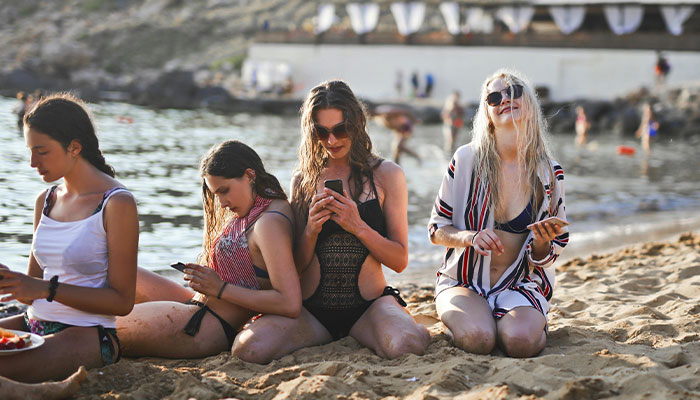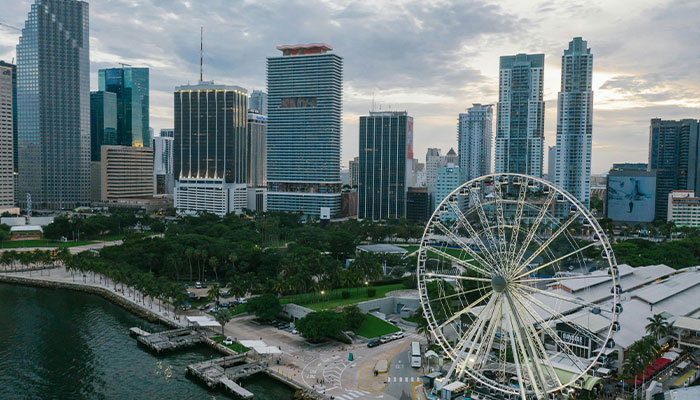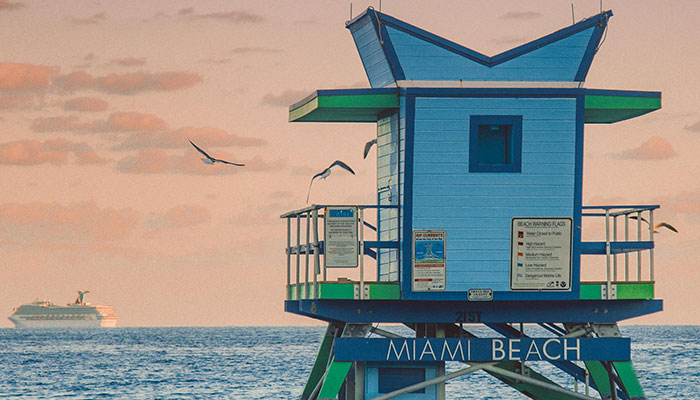Unwelcome to Miami, no more “Bienvenidos a Miami.” As the US state of Florida has been preparing for the influx of spring breakers amidst rising temperatures and recent incidents, cities like Miami Beach and Fort Lauderdale have been taking contrasting approaches to manage crowds and ensure safety.
Spring break, which is typically set around March or April, has traditionally seen American college students flocking to the Sunshine State to party before returning for the final push of the academic term and studying for their exams.
Nevertheless, well-liked vacation spots have been experiencing a large influx of people heading to the beaches, causing significant crowds.
As Florida braces for spring breakers, Miami Beach and Fort Lauderdale adopted divergent strategies to control crowds

Image credits: Pexels/ RDNE Stock project
As a result, some authorities have been implementing seasonal restrictions to manage these crowds effectively. Many of these restrictions were put into effect on Friday (March 1), which coincided with the beginning of spring break weekend.
While Fort Lauderdale, Florida, has reportedly welcomed “organized fun,” Miami Beach, on the other hand, has demonstrated its wish to “breakup” with spring break, as reported by USA Today.
The city has now imposed additional security every Thursday through Sunday in March, limiting beach access and closing liquor stores early.
For March 7 through 10 and March 14 through 17, the city will close parking garages in South Beach.
Miami Beach enforced strict measures, signaling a departure from embracing spring break festivities

Image credits: Pexels/ Andrea Piacquadio
In its hilarious spring break breakup campaign, Miami Beach stated: “We’re breaking up with spring break.
“Expect curfews, security searches and bag checks at beach access points, early beach entrance closures, DUI checkpoints, bumper-to-bumper traffic, road closures, and arrests for drug possession and violence.”
Contrary to Miami Beach, Fort Lauderdale Mayor Dean Trantalis told USA Today the city is “embracing” spring break, welcoming tourists to enjoy the entertainment, beaches, and restaurants.
However, the city’s association with the holiday hasn’t consistently been peaceful, as Trantalis noted that in the 1970s and 1980s, spring breakers came in hundreds of thousands, overwhelming the city.
Miami Beach’s humorous breakup campaign promised strict enforcement measures

Image credits: Pexels/Mikhail Nilov
He recalled: “We had no rules in place, and it really wreaked havoc on our community to the point where it was driving away other visitors and certainly gave investors pause.”
The chaos led Fort Lauderdale to do the same thing in the early 1980s that Miami Beach is doing this year, he reportedly said.
Over time, the crowds stopped coming in such large numbers, and restrictions, like closing the beach at 5:30 p.m. and mounted patrol on the beach, help to keep things under control these days, the mayor reportedly said.
Trantalis added: “We understand that spring break often brings young people who are looking to have a good time.
“As long as, you know, they maintain a conduct that you know doesn’t destroy property…we feel that spring break is a welcome opportunity for Fort Lauderdale to host.”
Fort Lauderdale’s mayor reflected on past chaos, highlighting the success of implementing similar measures to Miami Beach’s current approach

Image credits: Pexels/ Arnie Watkins
Last year, Miami Beach witnessed consecutive shootings, resulting in two fatalities, prompting a state of emergency due to the emergence of disorderly crowds in the streets.
At the time, it was the third consecutive year the city declared a curfew and state of emergency, USA Today reported in 2023.
Miami Beach Mayor Dan Gelber said at the time in a video: “We don’t ask for spring break in our city.
“We don’t want spring break in our city. It’s too rowdy, it brings too much disorder, and it’s simply too difficult to police.”
You can watch Miami Beach’s breakup with spring break campaign below:
Last year, the Miami Beach Police Department also took to its Facebook page to announce that it had conducted 488 arrests, impounded 105 firearms, and issued 7,190 traffic citations between February 27 and March 27.
And in 2022, two shootings injured five people, leading to another curfew, while in 2021, Miami Beach reportedly made more than 1,000 arrests amongst spring breakers, leading them to issue an emergency curfew.
This year, Miami Beach decided that enough was enough.
“They don’t respect the city,” a reader commented




















 English (US) ·
English (US) ·